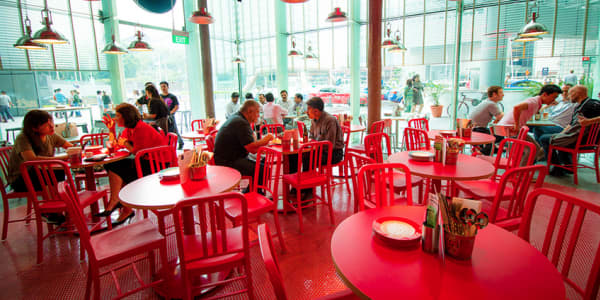
The government in Myanmar gets high marks for supporting economic liberalization but needs better planning to go the distance, one of the country's most successful entrepreneurs told CNBC.
"We have a government that is very pro-business. Where they might be lacking a bit is the ability to map out a high-level strategy, and do things step-by-step towards a goal," says Serge Pun, who owns a sprawling conglomerate of more than 40 companies.
"Success in most economies don't come ad-hoc. It requires master planning to plot out what a country would do in five, 10, 15 years."
Speaking to Martin Soong in a CNBC Entrepreneur Asia: Power Players interview, Pun said it was a bit idealistic to expect Myanmar to become a completely free-market system – especially when it had just emerged from economic isolation.
"If the government gets out of the way, you would probably have entrepreneurs succeeding and making a lot of money through individual projects. But it doesn't mean the country is on the right path."
Success means inclusive growth, he added, and alleviating poverty and allowing wealth to trickle down require good government planning.
The 62-year old Pun's Yoma Strategic Holdings is a Singapore-listed company with market capitalization of more than $550 million. He also chairs Serge Pun & Associates and First Myanmar Investments. His business empire spans eight key sectors including property, banking and aviation.
A Myanmar-born ethnic Chinese, Pun spent most of his younger years in China and Hong Kong before returning to his home country in the 1990s.
Read MoreChina polishes Myanmar relations as West closes in
Today, he is widely known as the go-to guy for foreign companies seeking partners in Myanmar. Yoma Strategic recently teamed up with Yum Brands to bring a KFC franchise to Myanmar, with the first store set to open in downtown Yangon this month.
Whether growing organically or through partnerships, the key to managing a successful enterprise, says Pun, is to select businesses with the biggest potential, and make them scalable.
"If we just embark on a business, we want to be able to grow that business to be substantial part of our company, in its own right. Take KFC for instance, we are starting, of course, with one outlet, but we're already looking at when the 250th shop will open, when the 500th shop will open.
Which, by the way, are not big figures because Thailand and Indonesia have more than 500 KFC stores," Pun says.
Read MoreCentral Asia's battleground: Who's winning?
That said, resilience and persistence are essential when operating in a frontier market like Myanmar.
"You have to have a lot of resilience and a lot of patience, determination. Without that, you lose heart quite easily because some of the difficulties that you encounter are things that you will not expect in a more developed country or environment," said Pun.
For more on Serge Pun's interview, tune in to Entrepreneur Asia: Power Players on CNBC. The episode will air on June 18, at 5:30pm sin/hk, with repeats over the weekend.




